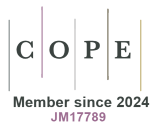Most read articles by the same author(s)
- Myrna Candelaria Hernández, Xavier López Karpovitch, Francisco Javier Mijangos, Efreen Montaño, Arely Lemus Carmona, Silvia Guzmán Vázquez, Herman Soto Molina, Cost-Effectiveness of Azacitidine Compared with Low-Doses of Chemotherapy (LDC) in Myelodysplastic Syndrome (MDS) , Global and Regional Health Technology Assessment: Vol. 4 No. 1 (2017): January-December 2017









